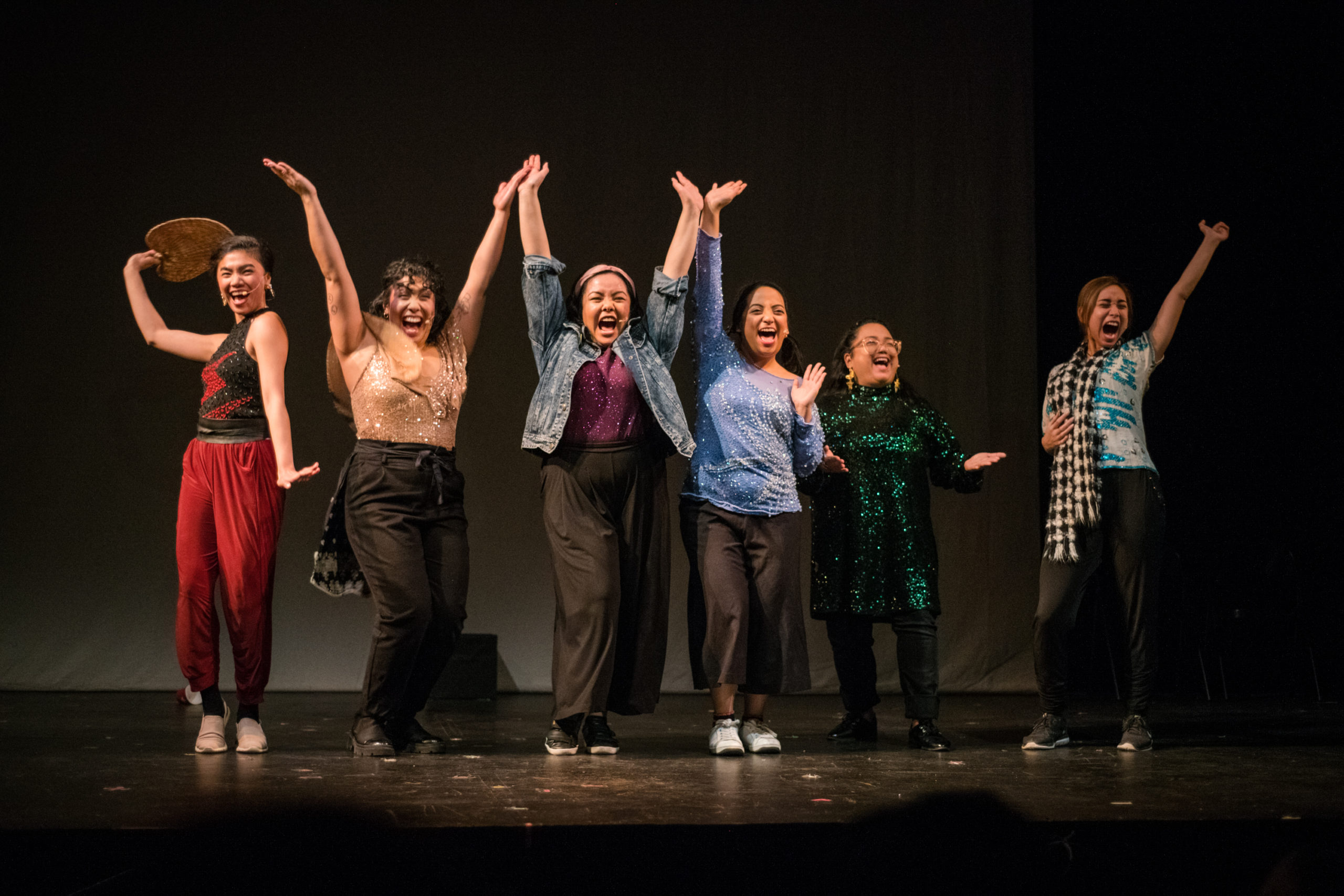Tita Collective is a Filipino comedy troupe consisting of Alia Rasul, Ann Paula Bautista, Belinda Corpuz, Ellie Posadas, Isabel Kanaan, and Maricris Rivera. An ensemble of multidisciplinary artists who have performed as part of the coveted Second City, they now perform sketches and songs that poke fun at aspects of Filipino culture and the challenges that the Filipino diaspora face.
With the vaccine roll-out, Canadians are starting to see some semblance of normalcy. Artists across Canada, however, are still being left in the dark. Theatres and other live venues have been shutting their doors both permanently and temporarily all across Canada and artists have been struggling to make ends meet.
While the pandemic has led the Tita Collective to abandon the live venues that they would normally perform at, they have been able to perform by releasing recorded sketches. Recently, they have begun work on a new project entitled ISM.
According to Rivera ISM is an artist-in-residence program for the collective that was possible through funding from the Toronto Arts Council. “We’re going to go to a cottage somewhere for a couple of days, where we can just focus on creating sketches or songs,” she says.
Corpuz says that ISM seeks to explore the numerous issues that Filipinas face in society. “I guess when we’re thinking about ISM, we’re talking about the different “-isms” that we experience as Filipinas as part of the BIPOC community: racism, sexism, and ageism. We were curious about exploring those different themes and the different “-isms” that affect us and how we have been formed by them,” she says.
With the rise of anti-Asian hate crimes across North America, Asian race relations have been brought to the forefront. Filipino-Canadians in particular form one of Canada’s oldest and largest Asian communities. However, much like other BIPOC communities, they still remain severely underrepresented in the Canadian arts scene. In an environment that is ‘predominantly white’, Tita Collective aims to give Filipinos and the BIPOC community a voice as performing artists.
“We created this because opportunities like this don’t exist for people like us and for other BIPOC communities. A lot of the time, it feels very competitive because there are only a few coveted spots for us. We decided to reclaim that opportunity for ourselves and create a very safe environment to be creative, under our own control and power,” Corpuz says.
Nevertheless, the transition to online performances has been difficult. “Our group consists of six, so it’s been a bit hard for us to coordinate our content online. Also, the online world is so rich with many different possibilities, so we try to figure out what our wheelhouse is,” Posadas says.
“Our focus in the pandemic has been creating a lot of musical sketches since it’s our forte and we’re very much a musical group,” she adds. The group’s most successful work, Tita Jokes, is a musical revue while much of their other online content consists of covers of pop songs with Filipino-centric lyrics.
Posadas adds that there’s no clear-cut formula for online content. “I think it’s safe to say that we haven’t exactly had a formula. It’s a whole new world and we’re trying to figure out what works for us and what doesn’t,” she says. “I think the really interesting thing about everything being online is that oftentimes people perceive your online appearance to be who you really are when in reality, we’re all trying to figure it out.”
However, as the group met through theatre, they feel as if a part of them is missing with the lack of in-person performances.
“Being on stage is a big part of us. It’s part of our origin story as friends and as a sisterhood. Not being able to share that space together is very hard — it’s difficult because you can’t receive the love through a screen or Zoom call. When you’re on stage you can put your whole heart and soul on your sleeve,” says Corpuz.
Posadas emphasizes that being unable to interact with an audience also sets a big difference between performing online and in person. “It feels very sacred to be sharing personal stories onstage and to hear them for what they are in the moment. I think we can all agree that one of the things we’re most proud of is seeing how people feel watching our show,” she says.
Rivera also adds that interacting with the audience and hearing their reactions is important to the show. “Filipinos are so loud, and when you’re performing, you can feel when the audience is Filipino. You can hear them laugh at certain moments in our performance, and you know that they get that part because they’re Filipino. It’s so satisfying and it feels like we’re getting to enjoy this all together as one,” she says.
Overall, Tita Collective’s work online is still rife with social commentary pertaining to the Filipino diaspora and BIPOC issues within society. However, the act of performing in a physical space is, in itself, a way to be represented, according to Posadas.
“There’s so much value in physical space. There’s so much value in the opportunity to be on stage as Filipina women as well as in the fact that an entire theatre is being designated to a Filipino audience when we perform, almost like a form of representation for us,” Posadas says. “There’s more value in being paid as an artist than just money.”


